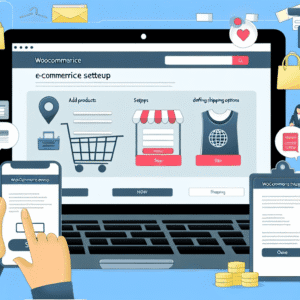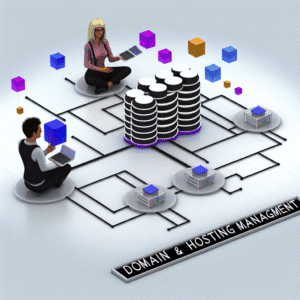As Nigeria strides into 2025, the winds of change are blowing, bringing with them the call for sustainability in business practices. The buzz around green technology isn’t just empty chatter; it’s a clarion call for small and medium-sized enterprises (SMEs) to reassess their business models and embrace innovative solutions that foster sustainable growth. Whether you run a budding tech startup in Lagos or a local agricultural venture in Kano, integrating green technology into your operations can be the game-changer you’ve been looking for. In this blog post, we’ll explore how Nigerian SMEs can harness green technology for sustainable success.
What is Green Technology?
Before diving into the how-tos, let’s clarify what we mean by green technology (or cleantech). Simply put, it comprises products, services, and processes that leverage renewable resources and reduce environmental impact. This includes everything from solar power and biodegradable materials to energy-efficient processes. Essentially, if it helps save our planet while keeping your business running, it falls under the umbrella of green tech.
Why Green Technology Matters for Nigerian SMEs
1. Cost Savings
One of the most immediate benefits of adopting green technology is the potential for significant cost savings. For instance, utilizing solar panels can reduce electricity bills drastically, especially in regions where power supply is unreliable. This means that money saved can be reinvested into the business for growth initiatives.
2. Competitive Advantage
As consumers become increasingly eco-conscious, they are more likely to support businesses that prioritize sustainability. By integrating green technologies, you not only enhance your brand image but also cater to a growing market segment that values corporate responsibility.
3. Access to Funding
Many financial institutions, both locally and internationally, are now considering the sustainability of businesses when dispensing loans or investments. SMEs that adopt green practices can tap into various funding sources dedicated to promoting eco-friendly initiatives.
Innovative Green Solutions for SMEs in Nigeria
Now that we’ve established why green tech is essential, let’s look at some specific solutions that Nigerian SMEs can implement in 2025.
1. Solar Energy
Solar power is perhaps the most impactful green technology for Nigerian SMEs. With an abundance of sunlight year-round, solar panels can provide a reliable energy source. Not only does this reduce dependency on erratic grid power, but it also cuts operational costs.
2. Biodegradable Packaging
For SMEs involved in manufacturing or retail, switching to biodegradable packaging can significantly reduce environmental impact. Investing in materials that decompose naturally is not only good for the planet but also attracts environmentally-conscious consumers who prefer products that are sustainably packaged.
3. Water Conservation Technologies
Water scarcity is a pressing issue in Nigeria. Implementing rainwater harvesting systems or water-efficient irrigation techniques in agricultural SMEs can conserve resources. This not only boosts sustainability but also improves yield and lowers costs.
4. Energy-Efficient Machinery
Investing in energy-efficient machinery may involve an upfront cost, but the long-term benefits are worth it. These machines consume less power and cut down on energy bills, making them a smart investment for any SME looking to grow sustainably.
5. Digital Solution Platforms
Transitioning to digital solutions minimizes paper waste and allows for remote work opportunities. Platforms that enable virtual meetings, cloud-based document storage, and online services can optimize resources and reduce a company’s carbon footprint.
Overcoming Challenges
While the benefits of adopting green technology are compelling, implementing these solutions can be daunting for many SMEs. Here are some common challenges and how to overcome them:
1. Initial Costs
Transitioning to greener alternatives often comes with upfront costs. To manage this, consider phased implementation. Start small with solutions that offer the most immediate return on investment, such as energy-efficient lighting.
2. Lack of Awareness
Many Nigerian SMEs might lack the knowledge on how to integrate green technologies effectively. This is an opportunity for collaboration. Partnering with local experts or consultants can provide insights tailored to your specific needs and industry.
3. Infrastructure Issues
In some cases, existing infrastructure may not support new technologies. This is where government initiatives and collaboration with NGOs can play a role. Keep an eye out for grants or programs targeting SMEs interested in adopting green solutions.
FAQs
1. What are some low-cost green technologies I can adopt immediately?
You can start with energy-efficient lighting, digital platforms for document management, and water-saving fixtures. Even small changes can lead to significant savings!
2. How can green technology benefit my brand image?
Consumers today are more socially aware than ever. Embracing sustainable practices can enhance your brand perception, attract eco-conscious customers, and even improve employee morale.
3. Are there government incentives for adopting green practices?
Yes! The Nigerian government and various NGOs often offer programs and funding options for SMEs adopting sustainable practices. Keep an eye on official channels for updates.
4. How do I measure the impact of green technology on my business?
Start by tracking energy consumption, waste production, and cost savings over time. This data will help you assess the financial benefits and overall impact of your green initiatives.
5. Where can I find support for implementing green technology?
Many local NGOs, government programs, and consulting firms specialize in sustainability. Engaging with them can provide valuable resources and insights tailored to your business context.
Call to Action
As Nigeria’s SMEs continue to evolve in 2025, the adoption of green technology is not just an option—it’s a requirement for sustainable growth. Don’t get left behind; start integrating these innovative solutions into your business today.
Need help? Check out Nikenga Web Services for managed hosting, marketing, and development tailored to your SME’s needs! Our team is here to support you through your journey toward sustainable growth. Let’s work together for a greener, more profitable future!







